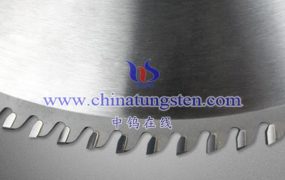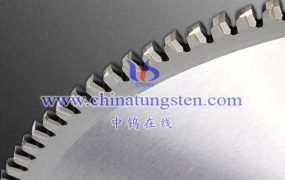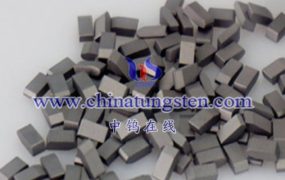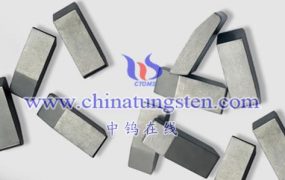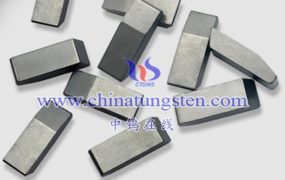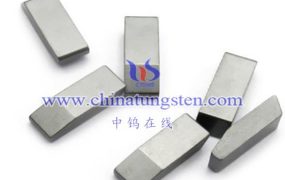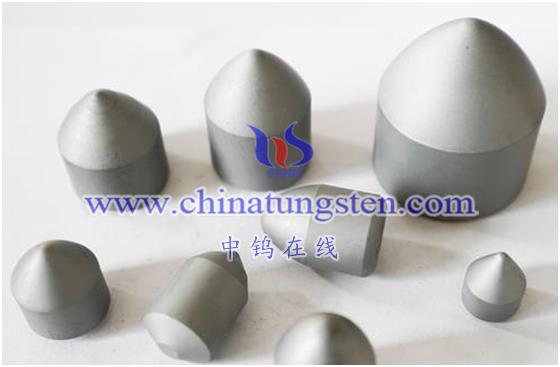
As industrial production requires higher and higher quality, the demand for cemented carbide products is also increasing. In view of the specific use environment, the excellent performance of ultra-fine grained cemented carbide is more obvious than that of commonly used cemented carbide. According to the grain size classification standard (ISO4499), the grain size of coarse-grained cemented carbide is 2.5-6.0 μm, and the grain size of ultra-coarse-grained cemented carbide is greater than 6.0 μm.
Coarse-grained and ultra-coarse-grained cemented carbide are widely used in oil drill teeth, coal cutter teeth, road cold milling machine teeth, stamping dies, rolls, etc. Both low-cobalt coarse-grained and high-cobalt fine-grained cemented carbide have become the development directions of cemented carbide. The design principle of low-cobalt coarse-grained cemented carbide is: WC grains are coarse, the specific surface area is reduced and the cobalt layer in the alloy is thickened, thereby improving the impact toughness of the alloy. The cobalt content in cemented carbide is reduced, and the WC content in the alloy is increased, improving the wear resistance of the alloy. The comprehensive effect of low-cobalt coarse-grained cemented carbide makes the alloy have good toughness and high wear resistance.
Compared with fine-grained cemented carbide, ultra-coarse-grained cemented carbide WC has larger grains and reduced specific surface area, which makes the cobalt layer in the alloy thicker, thereby improving the impact toughness of the alloy. When the cobalt content in the alloy decreases, the WC content increases, improving the wear resistance of the alloy. The conduction speed of heat in grain boundaries is smaller than its conduction in pure WC grains. Coarse-grained alloys have fewer WC/WC and WC/Co grain boundaries than fine-grained alloys and thus have better thermal conductivity; high temperature Hardness tests show that from 400°C, the hardness of coarse-grained alloys with concentrated grain size distribution decreases at a much lower rate than alloys with finer or more uneven grain sizes. Therefore, the preparation of rock drilling cemented carbide tends to use lower cobalt content and larger WC grain size to achieve good mechanical properties and meet the corresponding high-temperature wear resistance. Under the same conditions with the same cobalt content, compared with traditional medium and coarse grained cemented carbide, ultra-coarse and extra-coarse grained cemented carbide have extremely high thermal conductivity, higher fracture toughness and red hardness. It has good thermal fatigue resistance and impact resistance and is mainly used for continuous mining of soft rock under extreme working conditions (such as coal mining, subway construction) and continuous operations of modern highways and bridges (such as road excavation and paving). The grain size of coarse-grained cemented carbide depends on the grain size of the raw material WC powder. When preparing coarse-grained cemented carbide, the ball mill crushing efficiency should be reduced as much as possible and the mixing efficiency should be improved to avoid excessive damage to the WC grains. In actual production, methods such as increasing the grinding ball diameter, reducing the ball-to-material ratio, and shortening the ball milling time are often used to reduce the ball mill crushing efficiency and improve the mixing efficiency.
CTIA GROUP LTD is based on 30 years of customized tungsten product production and processing technology. With the high quality of China’s tungsten products as its solid backing, CTIA GROUP LTD provides customers in need with customized production of carbide punch pins and precision punches, with perfect sizes. Tolerance requirements and batch product consistency meet customers’ best use value.
More details of tungsten carbide product, please visit website: http://tungsten-carbide.com.cn/
Please contact CHINATUNGSTEN for inquiry and order of tungsten carbide:
Email: sales@chinatungsten.com
Tel.: 86 592 5129595
